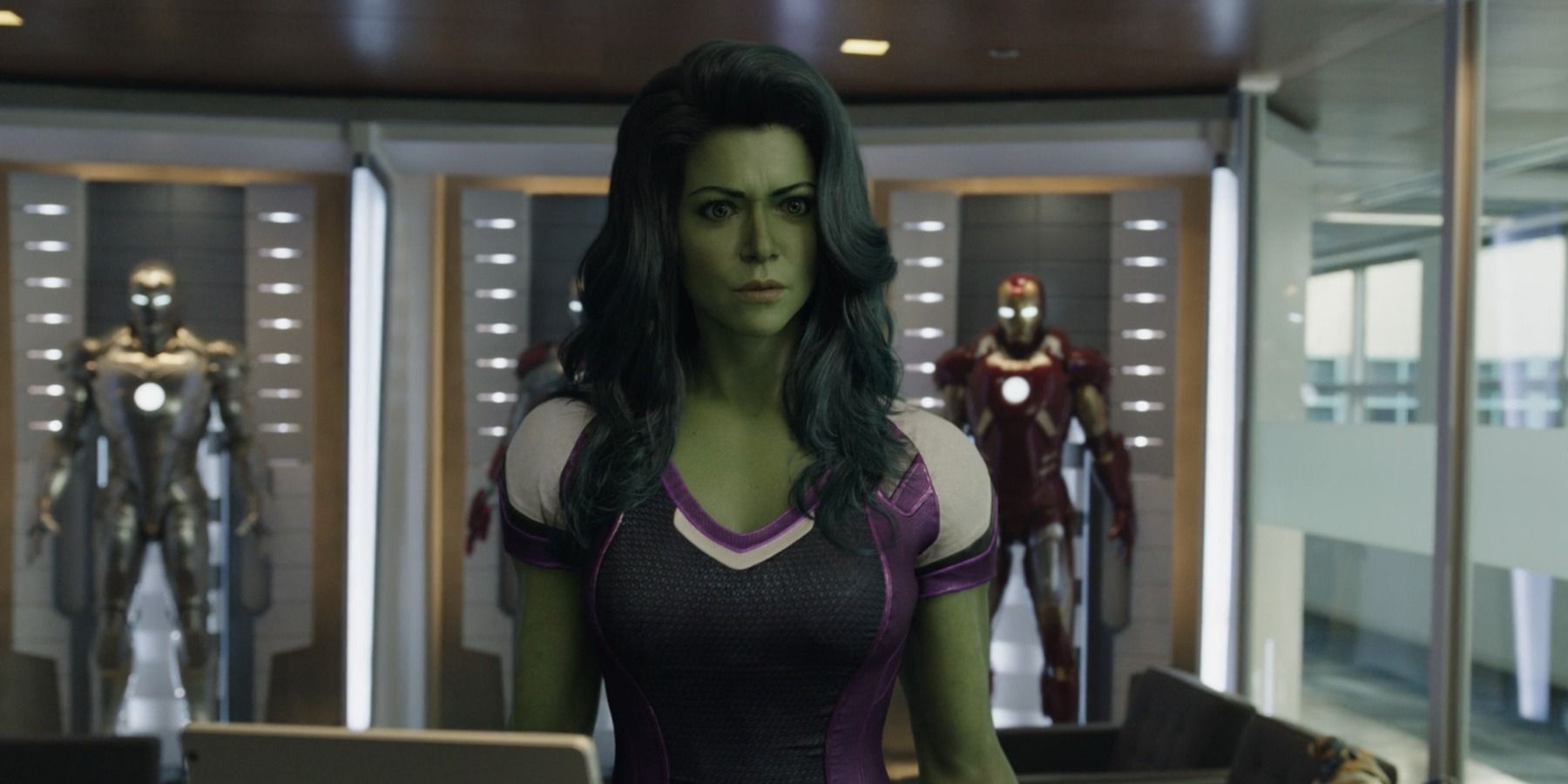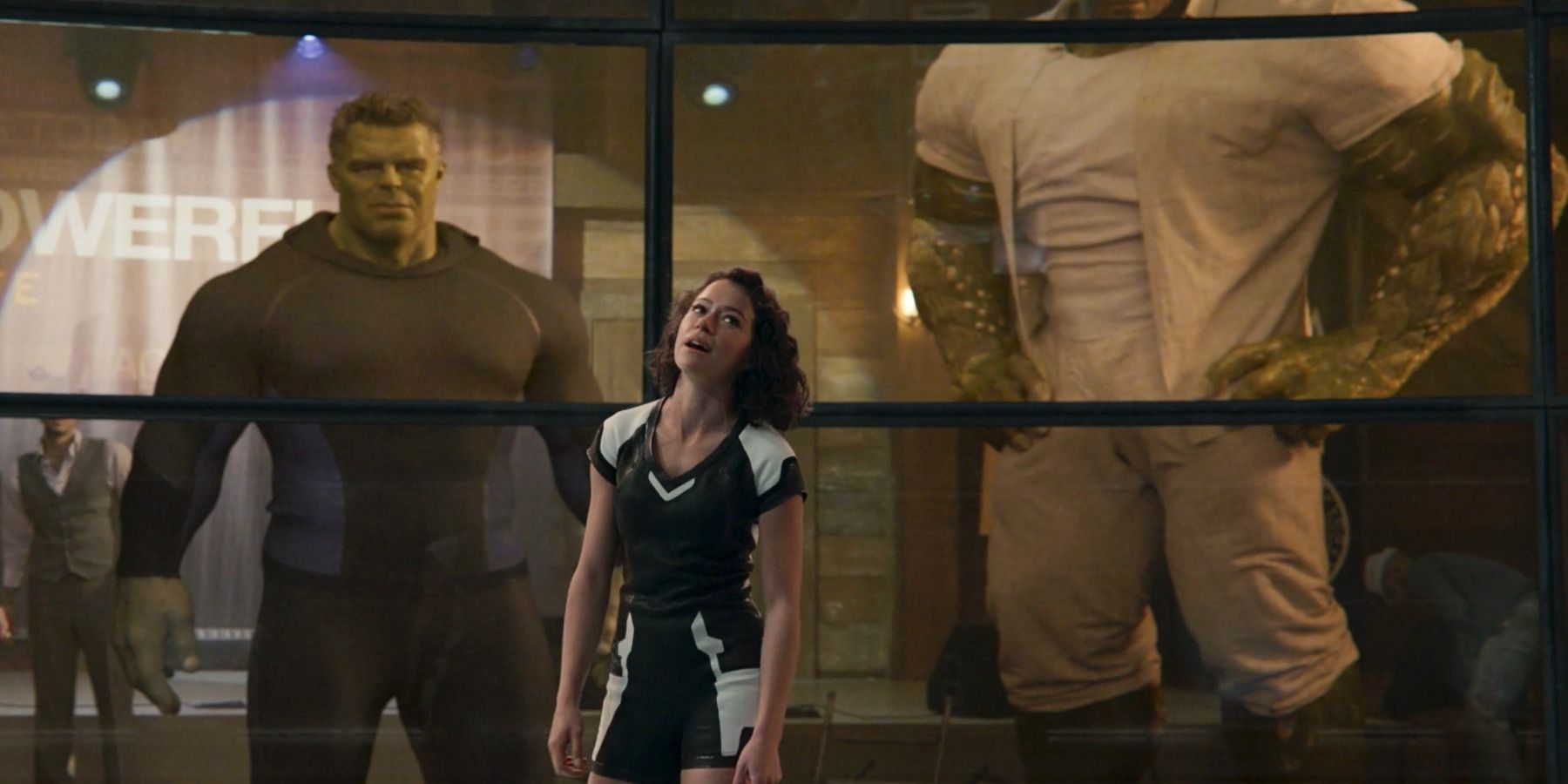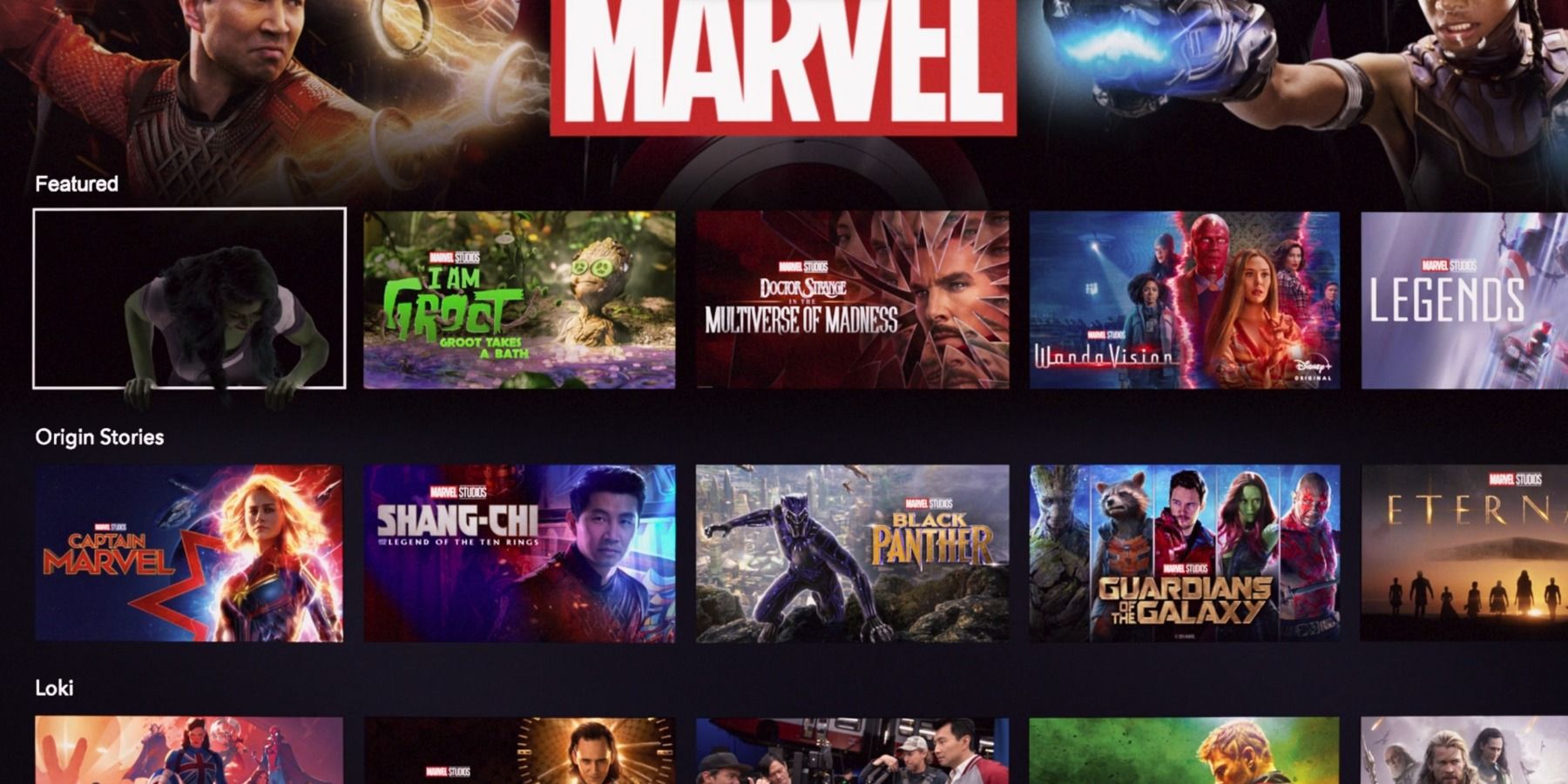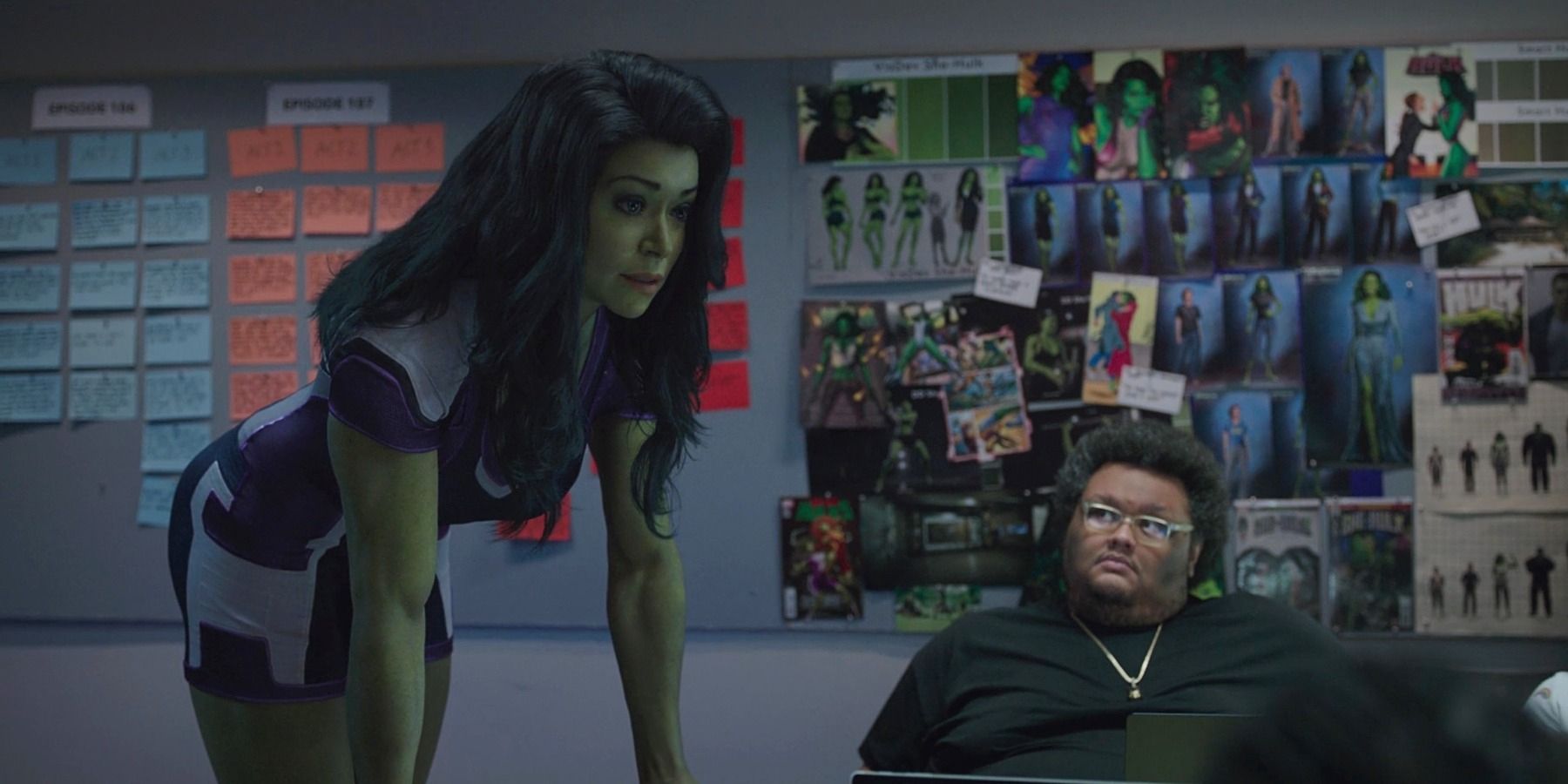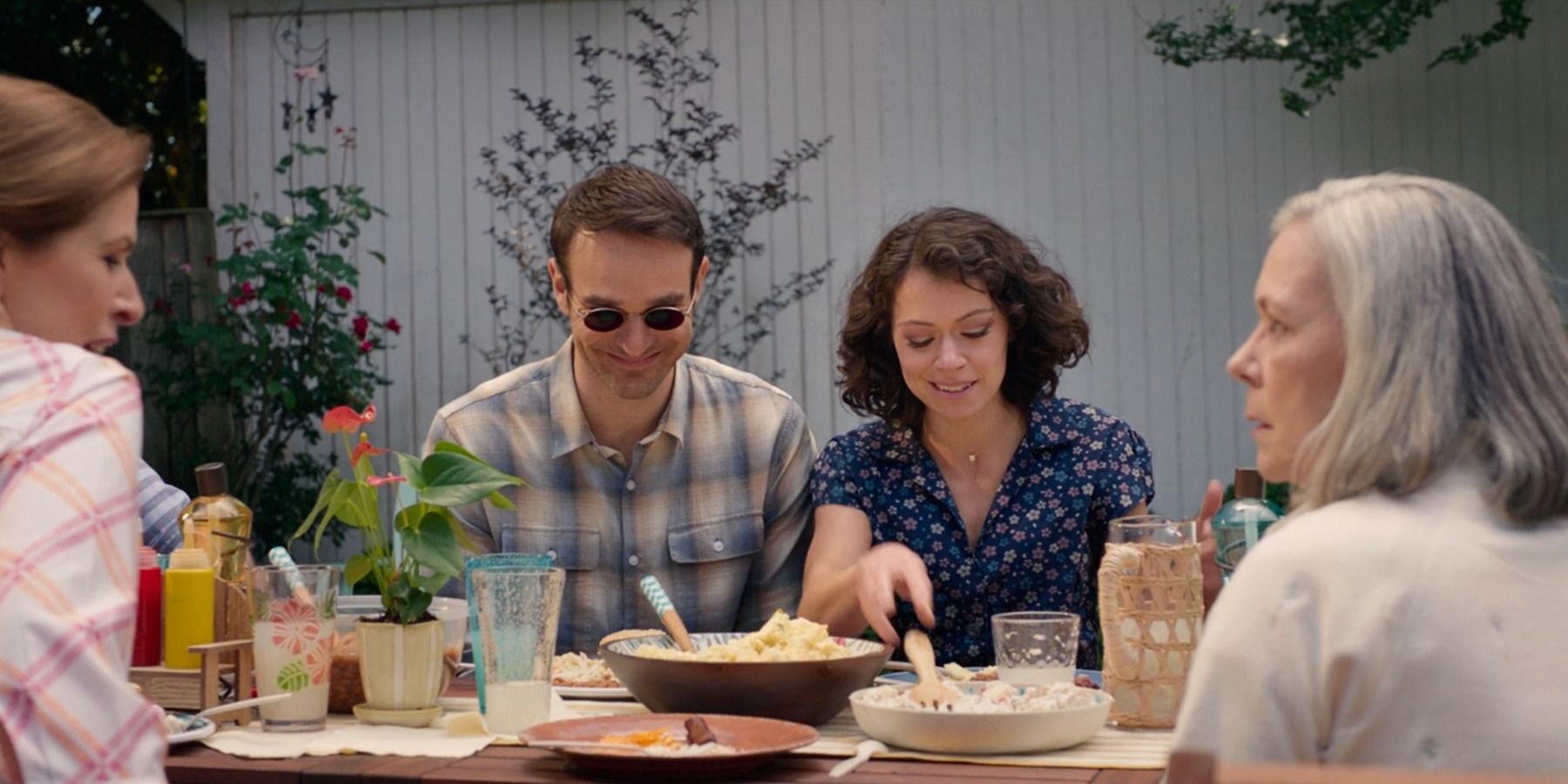After nine short episodes, She-Hulk finally capped off its Disney Plus run with an ending so out of this world that it stands out from everything else existing in the MCU, perhaps much more so than any of its previous episodes. And yes, that’s counting the Daredevil reveal.
Without a doubt, She-Hulk has taken more flak than any other Marvel property in existence, and it arguably deserves most if not all of it, yet the way the show’s writers tackled all that criticism using Jennifer Walters’ known fourth wall break is definitely worth praising. Whether is seemingly pointless villains, plots crafted with the sole purpose of producing content, predictability, or the lack of high stakes, She-Hulk’s creative staff pulled off a finale that takes a hard look in the mirror to give fans one of the MCU’s biggest twists ever.
She-Hulk Lays It All Out
From the minute Marvel Studios released the first trailer for She-Hulk, the series’ CGI left a lot to be desired in the eyes of many fans. This first point of contention came in a year when the working conditions of VFX artists have been brought to the movie industry’s forefront, with Marvel being widely considered one of its biggest offenders.
Since then, there were apparent improvements to Jen’s transformed persona, however, that didn’t stop She-Hulk from displaying an unusual kind of self-awareness by having K.E.V.I.N. address the matter directly. She-Hulk is pretty costly to put out there, every scene where this 6’7” woman shows up can is a logistical nightmare that a legal sitcom normally wouldn’t be able to afford.
She-Hulk’s unique style is only possible due to the success of the MCU, it’s a show so different from the rest, it’s no wonder it has a hard time with audiences. On top of that, the writers accurately predicted practically every talking point that would spawn from the show, whether it was its depiction of male characters, Megan Thee Stallion’s twerking cameo, the focus on Jen’s day-to-day problems, her dating life, some pretty lousy villains, and the protagonist’s own shortcomings, Jen always knows what's going on. Simply put She-Hulk has no problem being silly at times, but it’s definitely not foolish or naive.
The way the finale starts is a deliberate attempt to put together what would be a pretty terrible character arc for Jen, which only makes "Whose Show Is This?" even more satisfying. If so much freedom has been given already to its creators, then why would She-Hulk have to abide by Marvel’s sanctioned formula? Jen won’t have that, and in doing so the MCU tells fans they know not every production will stick to the well-known Marvel third act or Disney Plus’ final episode CGI fests.
It makes perfect sense some Marvel fans won’t end up enjoying She-Hulk all that much or outright hating it as the series identity is that of the studio’s most niche project, similarly to how Ms. Marvel catered to a younger audience. By mocking itself so blatantly, it not only honors the She-Hulk’s comic book stories, it’s impossible to deny how bold of an experiment it was.
Every Dog Has Its Day
As the MCU’s most divisive creation, She-Hulk saved its biggest surprise for its penultimate episode, which managed to bring over a new version of Daredevil that feels very comic-book accurate, even if a distant shadow of his Netflix self. That task was handled by comic book veteran Cody Ziglar, who wrote in a Matt Murdock that matches Jen, without automatically depriving him of his moody nature.
Matt is back due to Jen’s demands, yet what the finale does best is treating the two, and the entire show altogether, as some sort of joke gone wrong to ensure that She-Hulk’s MCU future is not shackled by the tropes that were put in place here. That’s even more necessary with the World War Hulk tease that Hulk and Skaar introduce, as it reminds the audience Jen can still easily make the jump to the mainline MCU, because she’s the most malleable character Marvel has.
The tone in the final three episodes is very different as Jen has to deal with worsening personal issues, including She-Hulk’s strange group of foes. Due to that same self-awareness, She-Hulk is capable of ridiculing Titania (its alleged villain), an absolute laughingstock, in favor of exposing its creepy Intelligencia gang, who resemble a real-life threat that’s more relatable in a show that spends most of its time attending to Jen as woman, not a superhero.
She-Hulk is an outlier in the MCU to the point she’s the first person to utter the word X-Men so casually without any regard for Kevin Feige’s plans, and the finale’s biggest win is probably that even those that hate the show can probably get a kick out of the huge plot twist it uses at the very last minute, because in a way the show is throwing shade at itself. The writer's satire is even better if one thinks the show is bad.
Even if Jen's fourth wall play isn't as funny as Deadpool's, or insufficient compared to the comics, the finale can be appreciated for being a hilarious adaptation of Peter David’s work on the character. Is She-Hulk the saving grace of Marvel Phase Four? No. Is it going to shatter MCU records? No. But for a single day, She-Hulk made a fool out of every viewer, and it did it with sufficient style to get people to talk about it for reasons beyond the possible scope of anything Marvel. Mission accomplished.

